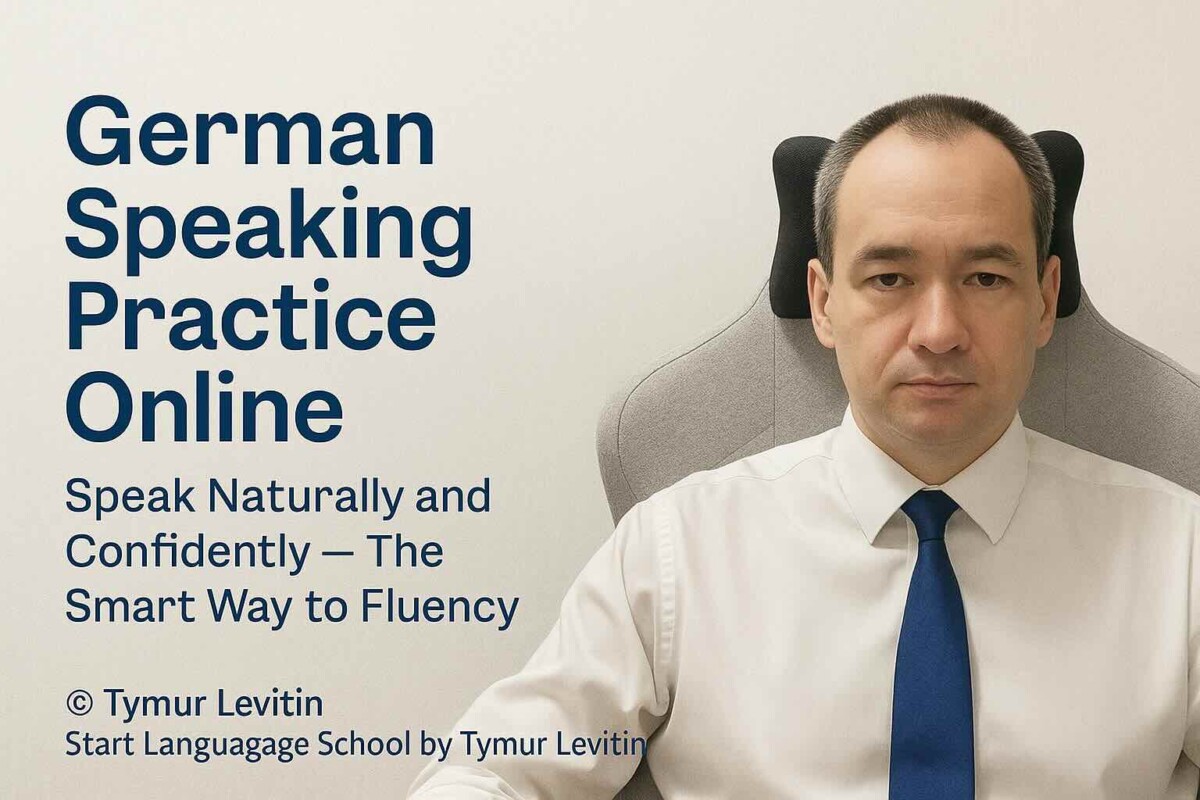🔗 选择语言
Not every “no” is a “no.”
In many languages, communication is direct. Clear. Immediate.
But German isn’t always like that. And that surprises a lot of students.
They ask:
“Why do Germans say ‘Ich weiß nicht, ob das geht’ instead of just ‘Nein’?”
Or:
“Why do textbooks use so many ‘vielleicht’, ‘meistens’, ‘normalerweise’, ‘eventuell’?”
答案很简单:
因为 German is not a direct language — at least, not in the way many expect.
German communication isn’t cold. It’s cautious.
There’s a popular stereotype that German is a cold or overly logical language.
But in reality, much of German communication is actually careful.
Not because people are afraid — but because they value precision.
That’s why native speakers often say:
- Das könnte vielleicht funktionieren. (This 也许 work.)
- Ich bin mir nicht sicher, aber… (I’m not sure, but…)
- Meistens ist es so. (通常, it’s like this.)
In each case, the speaker avoids sounding too final, too absolute.
It’s a way of leaving room for exceptions, for nuance — for reality.
Indirectness is a form of respect.
In German culture, direct “no’s” or absolute statements may come across as rude, arrogant, or insensitive — especially in professional or academic contexts.
例如
- Instead of “That’s wrong”, someone might say:
→ “Ich sehe das ein bisschen anders.”
(“I see it a bit differently.”) - Instead of “That won’t work”, you’ll hear:
→ “Ich bin mir nicht sicher, ob das klappt.”
(“I’m not sure if that will work.”)
This isn’t weakness.
It’s social awareness.
It’s a way to keep the conversation open — not shut it down.
Grammar reflects culture.
Even German grammar teaches this caution.
Students quickly notice that explanations often include:
- "我的" – usually
- “oft” – often
- “in der Regel” – as a rule
- “in den meisten Fällen” – in most cases
为什么?
Because German doesn’t like overgeneralization.
The moment you say “always,” someone will ask:
“Immer? Wirklich immer?”
That’s why grammar books and teachers say:
"In most cases the Dative follows nach, aus, bei…”
Not “always.”
Clarity ≠ bluntness
Many students think they’re being clear by being direct.
But in German, clarity comes from structure — not from volume or force.
说 “Ich will das!” loudly doesn’t make you sound confident.
It might make you sound demanding.
But saying “Ich würde gern…” shows the same intention — just with more tact.
Learning German means learning how to say less — and mean more.
This isn’t about being vague.
It’s about being appropriate.
这是关于 understanding how language creates space — for ideas, for people, for relationships.
So next time you want to say something in German:
- Pause.
- Ask yourself:
→ Do I want to be right, or do I want to be heard?
→ Do I want to close the conversation — or open it?
Because that’s what indirectness really is:
Not avoidance.
But awareness.
📘 Author’s Column — The Language I Live
语言。身份。选择。意义。
📍 泰穆尔-列维廷--创始人、教师和翻译家
🔗 列维廷语言学校
🔗 languagelearnings.com
























